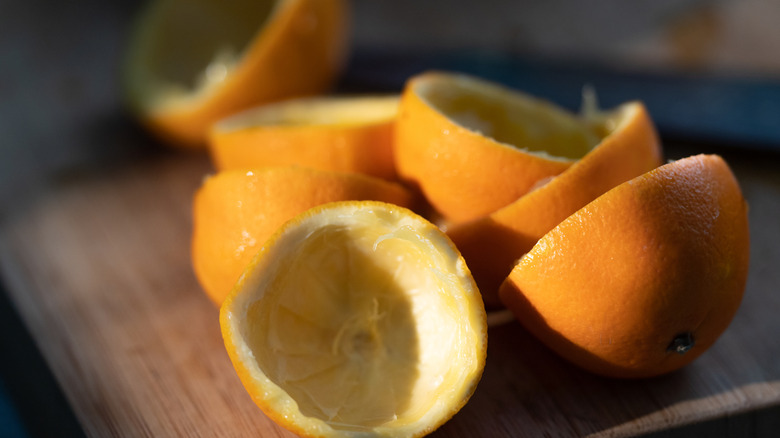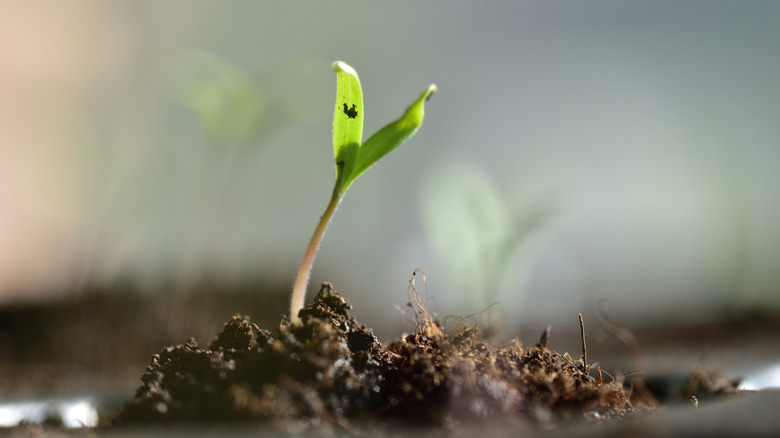How To Reuse Leftover Orange Peels In A Brilliant Way For Your Garden
Oranges (Citrus sinensis) are the most consumed fruit throughout the U.S. And as part of the annual harvest, 5 million tons of peels emerge as a byproduct. While most of Florida's oranges do go into juice production, only half of the peels are used, mostly as cattle feed with the rest thrown away. And although your family's individual consumption of oranges undoubtedly pales in comparison to those numbers, you can play a small part in reducing that waste. There are two ways that leftover orange peels may benefit your garden. They can be used as organic starter pots for seedlings, or they can be added to your compost bin.
Both of those uses for orange peels are worth exploring, and it's especially noteworthy how composting bins can reap the benefits of d-Limonene, a compound that makes peels a useful soil supplement to eradicate certain garden pests. The peels' nitrogen content can aid other plants' health during composting, too.
Making orange peel seedling pots and composting then later
Before you make your orange peel-seedling starter pots, read the instructions on the seed packets so you know when you should start the seeds indoors, what growing medium to use, and how much sunlight and water they'll need before being transferred to a garden or larger pots. Then to make your starter pots, cut oranges in half and scoop out the meat. Cut small holes in the bottom of the resulting bowl-shaped vessel for drainage, fill the bowl with growing medium, usually a combination of peat moss and vermiculite, and plant the seeds. Remember to keep the soil moist until the seedlings are ready to transplant.
For use in composting, orange peels take up to six months to biodegrade, and you can cut discarded peels into small pieces and add them to your garden or compost heap.
Ideally, you can begin composting in the fall when you'll have plenty of dead and dying organic material in the yard and garden. Be sure to add both green and brown materials as well as food scraps like orange peels and egg shells. Also keep the area damp but not moist and turn it once in awhile to aid in decomposition. The compost should be ready to use as a supplement in your garden when it's darker brown and easily crumbles with a telltale rich-earth smell. This stage typically takes between two and four months, and your whole garden will benefit from the process.

